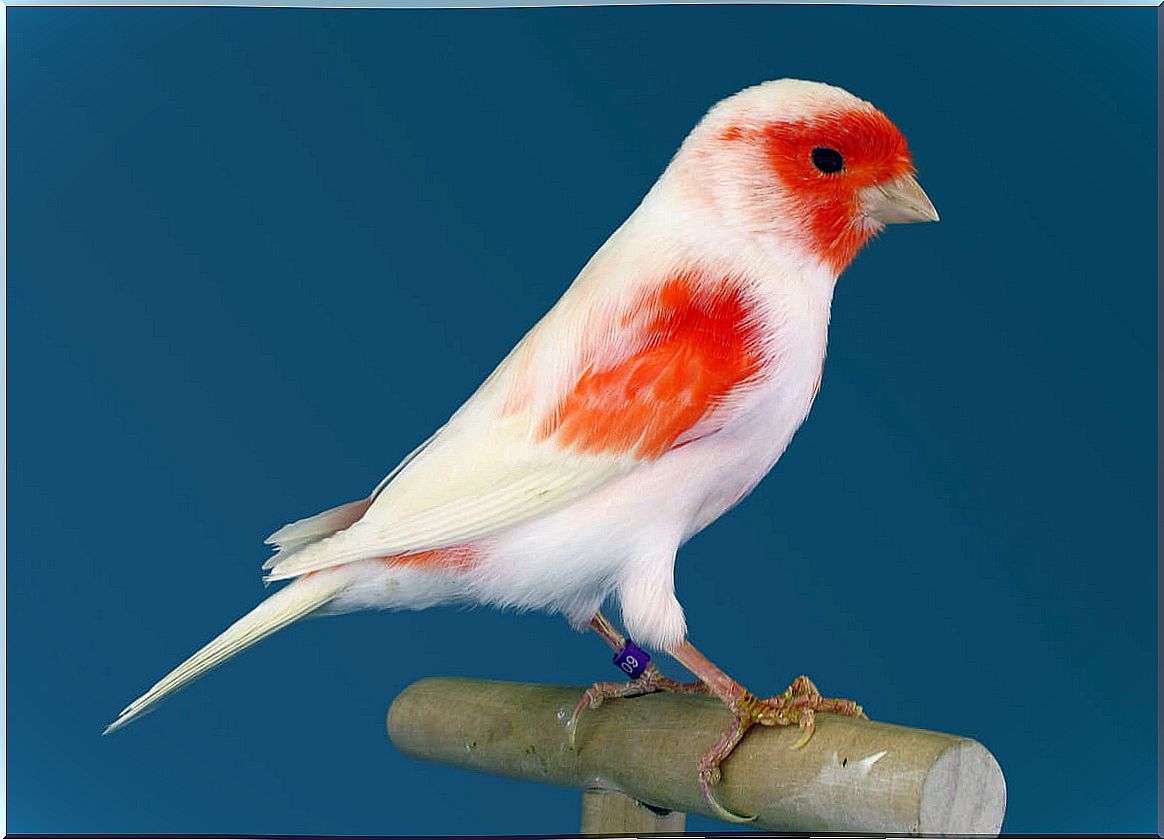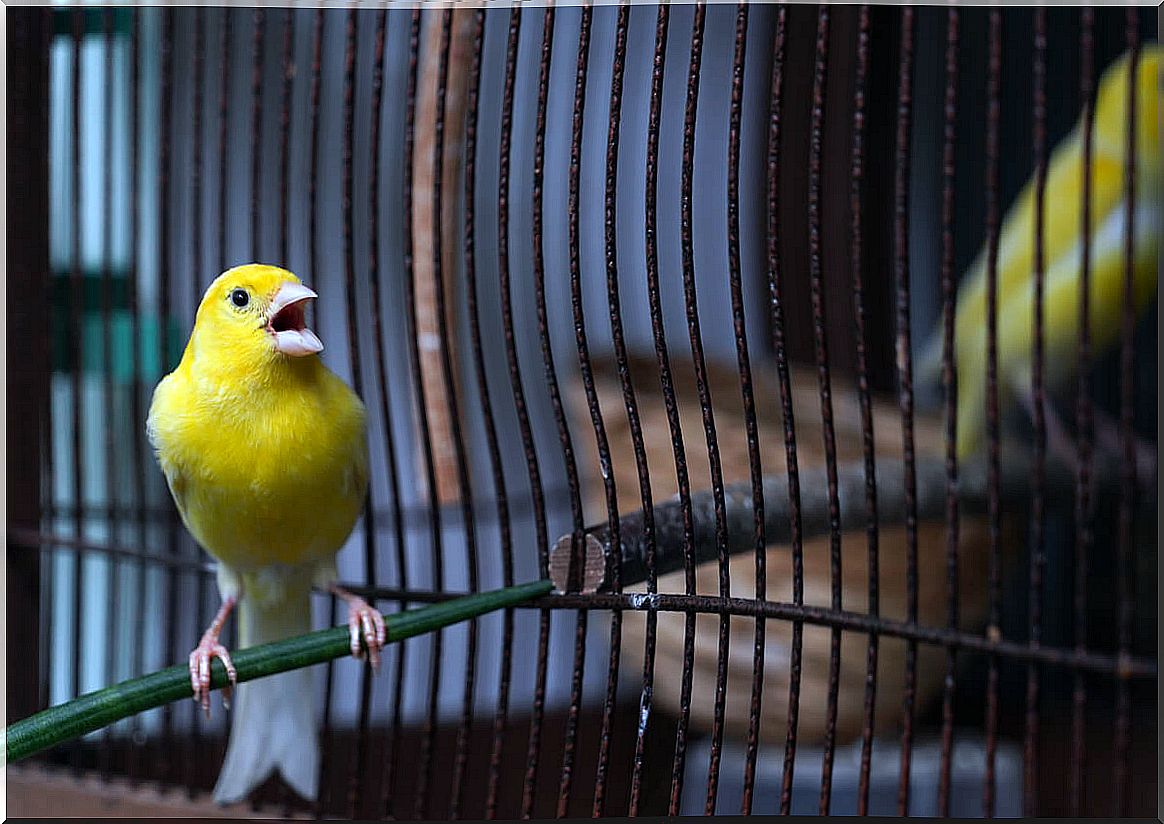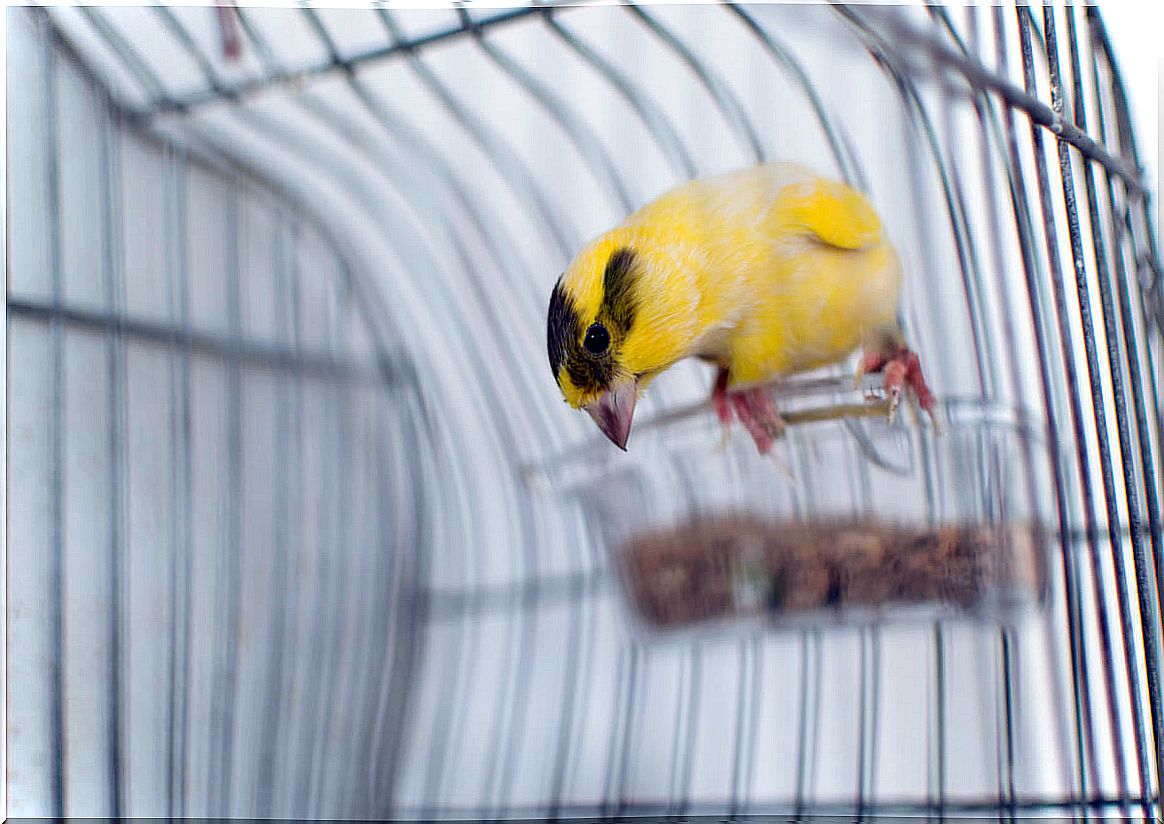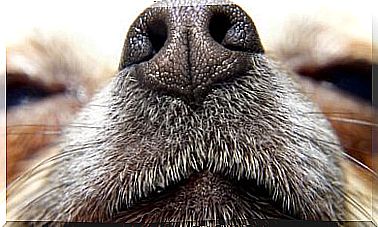Asthma In Canaries: Symptoms And Treatment

Asthma is defined as a chronic disease that causes the airways in the lungs to swell and narrow. This causes the patient to have shortness of breath characterized by wheezing, coughing, chest tightness, and shortness of breath. As surprising as it may seem, asthma in canaries is possible.
If your domestic bird has difficulty breathing, panting constantly and producing excess mucus, it may be that it has a cold or has an asthmatic picture. If you want to know how to deal with this pathology quickly and effectively, read on.
Asthma in canaries
Canary asthma is a chronic disorder characterized by respiratory distress, which usually increases during the last hours of the day and winter periods. Its exact cause is not yet known, but a clear genetic predisposition is suspected.
Asthma is a condition that in vertebrates is characterized by an inflammation of the airways, which causes them to narrow. Carrying oxygen through these irritated ducts is a real challenge and therefore the animal has a hard time breathing.

Asthma symptoms in canaries
In general, the most common symptoms of this pathology include a series of attacks with hoarseness, suffocation and gagging that, in the most serious cases, can lead to death by asphyxia of the animal. Among the most common clinical signs, we find the following:
- Difficulty breathing.
- Constant or intermittent gasping.
- Malaise and lethargy.
- You cough.
- Nasal discharge and profuse mucous secretions.
As you can see, the picture is very similar to that of a common cold, one of the most common diseases in canaries. The cold is caused by two main factors: the presence of moderately pathogenic microorganisms in the environment and a decrease in the animal’s defenses due to the drastic variation in temperature.
It is very important not to confuse both pathologies. The cold is a transient condition characterized by the invasion of a pathogen, while asthma is a presumably hereditary condition of a chronic nature. If you have doubts regarding the diagnosis of the disease, it is best to go with your bird to the vet.
Causes and treatment
As we have said in previous lines, it is suspected that genetic predisposition is one of the most important factors when it comes to triggering asthma in canaries. Even so, this clinical picture can also be promoted by other events. Among them, we find the following:
- Neurovegetative and endocrine imbalances, that is, failures in the basic functional systems of the organism.
- Feeding with irritating seeds and / or excess weight in the bird.
- A sudden presentation as a result of allergic processes or exposure to certain substances.
As you will see, it is quite difficult to establish a clear cause when diagnosing asthma in a pet bird. In any case, if an infection in the respiratory tract of the animal is ruled out, it is possible that it suffers from the disease that concerns us here.
What to do if your canary is asthmatic?
Regarding treatment, in general, the use of anti-asthmatic Tabernil is usually chosen, a specific drug for the treatment of asthma in canaries, parakeets, goldfinches, parrots and other pet birds. In addition, it is also used as an adjunct in treatments for parasitosis and infections, but it must always be accompanied by an antibiotic.
Its pharmacological components have antihistamine, antiallergic, bronchodilator and heart stimulating properties, among others. In addition to Tabernil, there are also aerosol treatments, which must be applied throughout the life of the animal for 1-2 times a day, depending on its health.
As far as prevention and management from home are concerned, several things can be done to try to alleviate asthma in canaries. Follow these tips if your pet has the clinical picture described here:
- Change the location of the cage: it is possible that the canary does not have asthma, but regularly catches a cold due to a poor location of its installation. The cage should always be placed in a warm place where there are no pronounced drafts.
- Keep an eye on the bird’s environment: if you have plants near the cage, remove them. Try to minimize possible allergens that could be causing the animal discomfort.
- Take your bird to the vet: if left untreated, the animal could die from suffocation. Asthma is usually a lifelong condition, but there are very cheap medications that will reduce the canary’s symptoms and improve its quality of life considerably.

A problem with a solution
Unfortunately, some tutors think that, since they are animals smaller than a dog or a cat, canaries suffer less or surely their pathology has no solution. Nothing is further from the truth: asthma can be treated effectively in these birds.
If you see that your canary is finding it difficult to breathe and sings less, it is most likely that he has a cold and will recover after a few days. On the other hand, if this clinical picture recurs continuously and gets worse and worse, it is possible that your pet has asthma. Take the bird to the vet, as he will give you an effective diagnosis and a series of steps to successfully address the disease.









